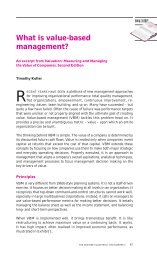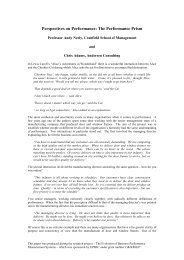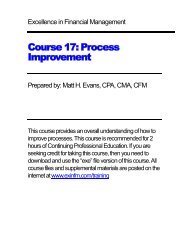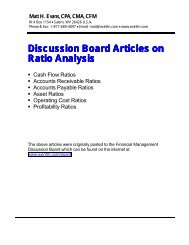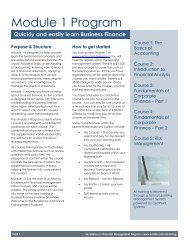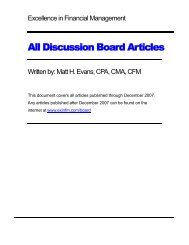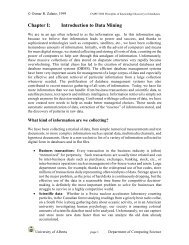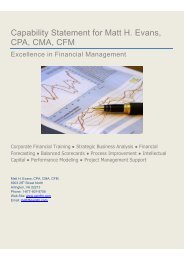Download PDF - Appreciative Inquiry - Cleveland Consulting Group
Download PDF - Appreciative Inquiry - Cleveland Consulting Group
Download PDF - Appreciative Inquiry - Cleveland Consulting Group
You also want an ePaper? Increase the reach of your titles
YUMPU automatically turns print PDFs into web optimized ePapers that Google loves.
enough" moves out of awareness as the organization taps into the river of<br />
positive possibilities. It becomes clear that the future can be built on the<br />
successes of the past.<br />
Assumptions of <strong>Appreciative</strong> <strong>Inquiry</strong><br />
1. In every society, organization, or group, something works.<br />
2. What we focus on becomes our reality.<br />
3. Reality is created in the moment, and there are multiple realities.<br />
4. The act of asking questions of an organization or groups influences the<br />
group in some way.<br />
5. People have more confidence and comfort to journey to the future (the<br />
unknown) when they carry forward parts of the past (the known).<br />
6. If we carry parts of the past forward, they should be what is best about<br />
the past.<br />
7. It is important to value differences.<br />
8. The language we use creates our reality.<br />
Adapted from Sue Annis Hammond, (1998) 2nd Edition. The Thin Book of <strong>Appreciative</strong> <strong>Inquiry</strong><br />
Plano, Texas: Thin Book Publishing Company, 20-21.<br />
An Important Diversion<br />
<strong>Appreciative</strong> inquiry relies on two important discoveries. First, Carl Jung came to<br />
the conclusion that most important problems are rarely solved. Rather, they are<br />
outgrown as interest shifts to something new or more intriguing, thereby<br />
leaving the original problem to fade away. Second, brain research has<br />
discovered that the human brain does not register or hear the word "not".<br />
Rather, to alter human behavior, it is more effective to positively tell the person<br />
what is expected instead of telling him or her what is not wanted. Returning to<br />
appreciative inquiry, as the individual and organization reveal "what works"<br />
within the organization, it is shifting the focus away from problem solving and<br />
©Herb Stevenson 4 <strong>Appreciative</strong> <strong>Inquiry</strong><br />
http://<strong>Cleveland</strong><strong>Consulting</strong><strong>Group</strong>.com



